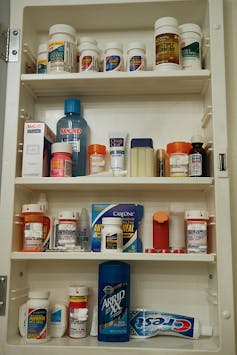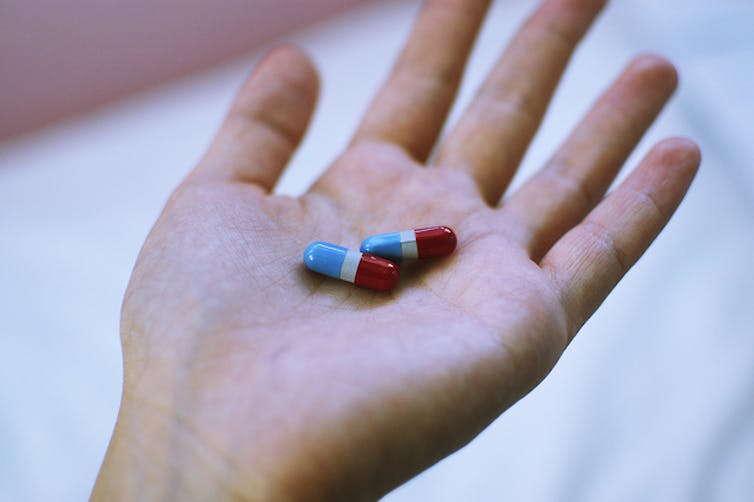It’s late in the night. And after a long day at work, you have a splitting headache. You rattle around in the bottom drawer of the bathroom vanity to find a packet of paracetamol tablets you know are hiding there.
Phew, relief is at hand! Then you turn the packet over and discover that the crumpled box of pills actually expired two years ago.
So are they really out-of-date, or would it be okay to take them just this once?
Well, the answer varies, depending on the type of medication, how it has been stored, over what period of time and whether it’s still in its original, sealed container.
Expiry dates were introduced for medicines around 30 years ago to signal the date beyond which the manufacturer can’t guarantee the full effectiveness and safety of the medication in its original sealed packaging. But that doesn’t mean it will suddenly become completely useless the day after it expires.

Once the container or seal is opened, the expiration date on the packaging doesn’t apply any more. Just like a tin of tuna from the cupboard, you couldn’t expect it would still be okay in two years time once you opened the tin.
Some tablets and capsules are packaged in blister packs or foil wrappers so although the box may be opened, the tablet or capsule is still in the sealed container and the expiry still applies. But when the medication comes in an open bottle, once it’s opened and exposed to air, the expiry date on the packaging no longer applies.
The United States Department of Defence’s Food and Drug Administration Shelf Life Extension Program has investigated the extent to which products are stable after their expiration date has been reached. It found that when medications were stored in their unopened containers, most remained stable for a number of years past the labelled expiry date.
Over time, the potency of some of the medications declined, while others were open to microbial contamination if there product’s preservative became ineffective. Liquid medications such as solutions and suspensions were generally not as stable as tablets and capsules.

Some medications – such as glyceryl trinitrate tablets (Anginine), insulin, eye drops and antibiotics – have specified discard dates that kick in after they’re opened. The stability of these medications is significantly altered with exposure to light, heat, moisture and oxygen, causing them to lose effectiveness. These are medications which should never be used after their expiry date.
And finally, where you keep your medication is also very important. For most medications, storing them in a cool place away from heat and high humidity can help to improve their shelf-life.
So what does all this mean to our headache sufferer with his packet of expired paracetamol?
The medication is still in its original sealed blister pack even though it’s two years past its expiry date. But it’s been stored in a warm and humid bathroom environment, which may alter the stability of medication and could change the effectiveness of the product. If he has no other alternative than the expired paracetamol, it may be better than nothing but it probably won’t be 100% effective.
But, of course, the situation would be different if we were talking about insulin, antibiotics or medicines with a “discard date”. These medicines should never be used beyond this date.
As a rule, it’s best not to use products after their expiry date to ensure you’re getting the maximum benefit from your treatments. And if you’re in doubt about the safety or effectiveness of any medication, check with your pharmacist.

